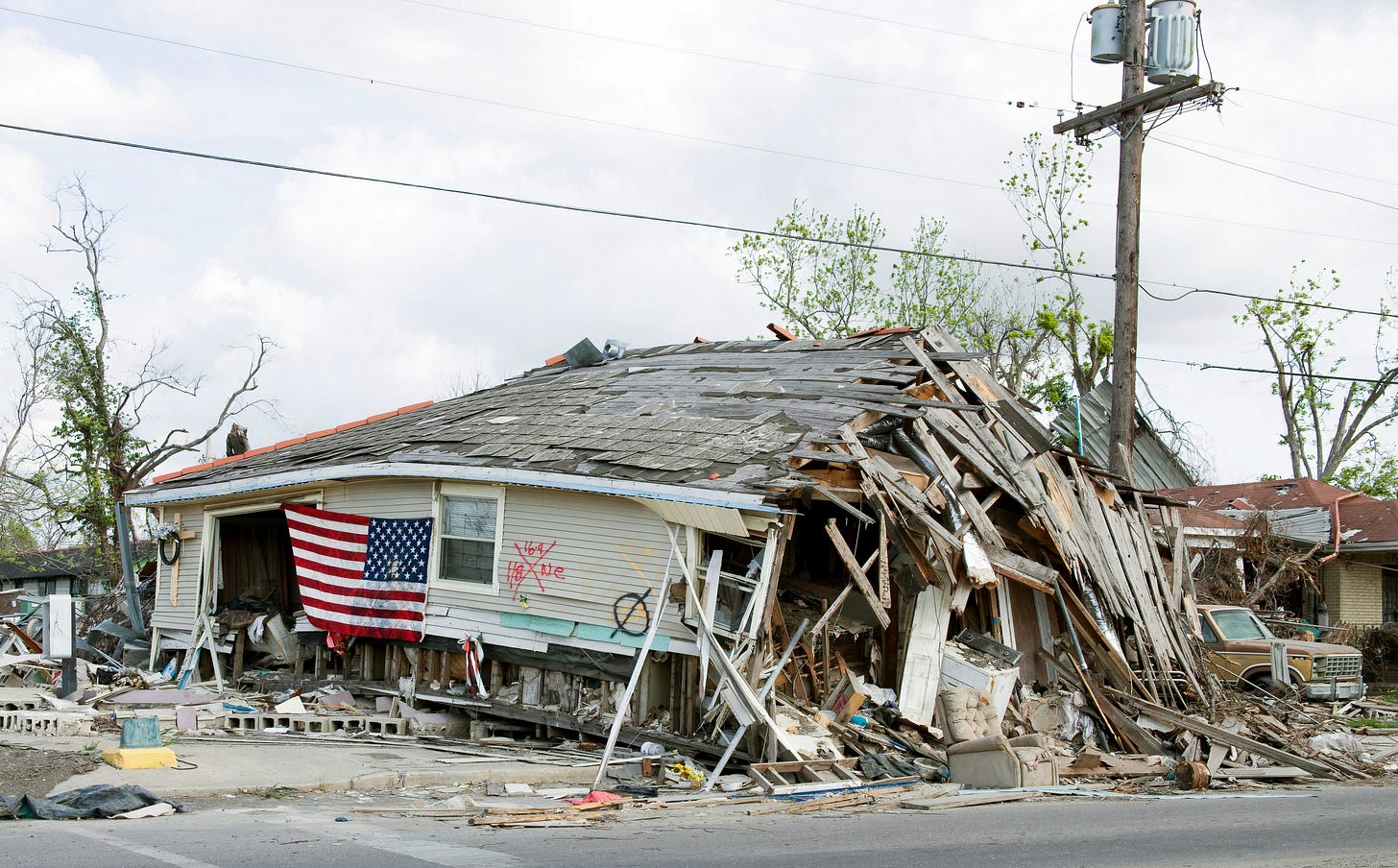America's Ongoing Cycle of Tragedy and Inaction
The urgency of addressing climate change and gun safety

In America's post-truth political landscape, MAGA-Republicans ridicule climate science. Their climate change denial has stalled action at scale to reduce greenhouse gas emissions for years. Luckily, Trump didn't yet have the power to close the institutes and agencies where the best climate scientists do their work. Since they can freely do their job, we know that scientists estimate that Hurricane Milton has caused about twice as much property damage as a similar storm would have done in a pre-industrial world.
Another study found that the increased heat in the Gulf of Mexico that fueled Hurricane Helene was 200 to 500 times more likely to have been caused by human-caused global warming. Similar research on Hurricane Milton came with a comparable conclusion: Climate change made it 400 to 800 times more likely to have raised the water to the recorded high temperatures.
Brief shimmers of hope after tragedy
Every so often, there is somewhere in the U.S. a school shooting that is even more dramatic than all the other ones. For a few days, it is daily on television; we first see the pictures of panicked students and parents, followed by another day where grieving parents and surviving students vow to end gun violence. Briefly, there is a shimmer of hope for proper gun control.
But the next day, the news cycle continues by focusing on the background of the shooter. In Europe, we are always astonished to see even serious news channels searching for answers to where the shooter got the gun. The question is as ridiculous as a Dutch journalist investigating how a student was able to find a bike in a country with more bicycles than inhabitants.
Not one American news channel asks their foreign correspondents the far more relevant question of why the rest of the world hardly ever experiences a school shooting. Nor do they ask how complicated it is to get a gun in a European country.
Hope for climate action
The pattern of focusing on the human tragedy instead of the structural cause repeats itself during extreme weather tragedies. In reporting about the hurricane-destroyed communities in America's southeast, there was also a brief shimmer of hope for climate action. Two devastating hurricanes in a row, clearly strengthened by human-made climate change, would finally be the wake-up call for politicians to take meaningful climate action.
It was not to last; attention focused on Republicans politicizing the relief efforts, ignoring the extra damage they created by spreading disinformation during an emergency. Any meaningful debate about climate action was forgotten even before it started.
These national tragedies, where hundreds of Americans lost their lives, should lead to a fierce debate on the policy response in times of a standard political culture. This time, the death of hundreds of Americans and tens of billions of dollars in damage was -again- not enough of an example of the dangers of climate change to lead to a reassessment of positions. Kamala Harris does her best to mention the structural problem of climate change as little as possible in her campaign and focuses on her efforts to coordinate federal assistance.
A sellout of the country
Much worse—no surprises here—is the other presidential candidate who called climate change a "hoax." The self-proclaimed "very stable genius" once tweeted that climate change was a concept created by the Chinese to make U.S. manufacturing non-competitive. He now promises to abolish environmental regulations and agencies; it's an irresponsible sellout of the country to oil and gas corporations' interests in return for power and a jail-free retirement in the White House (until discharged under the 25th amendment; loyalty, or a lack thereof, usually works both ways).
Keep reading with a 7-day free trial
Subscribe to The Planet 🌎 to keep reading this post and get 7 days of free access to the full post archives.




